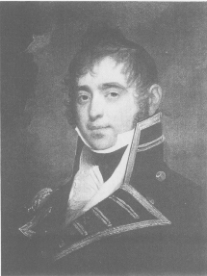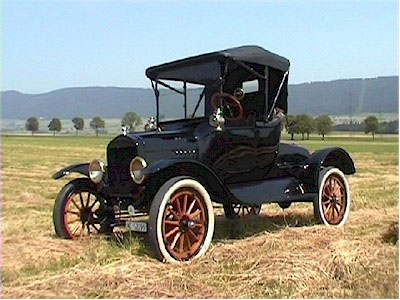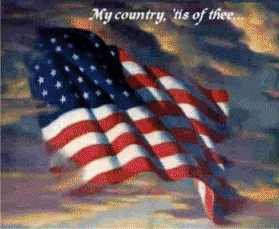Skip to comments.
USO Canteen FReeper Style ~ Pancakes on Wednesday ~ 1 October 2003
Canteen FRiends ~ Radix
Posted on 10/01/2003 1:32:32 AM PDT by Radix
| |
| |
For the freedom you enjoyed yesterday...
Thank the Veterans who served in
The United States Armed Forces. |
| |
|
|
| |
Looking forward to tomorrow's freedom?
Support The United States Armed Forces Today! |
| |
| |
|
| |
| |
| Pancakes on Wednesdays |
 |
|
|
Welcome to Pancakes on Wednesdays. Wednesday October 1, 2003 |
|
|
Here is an amalgamation of trivial facts and seemingly useless data. Do not forget to hit the hyperlinks. We have links, lots of them. 
|
| SCIOLIST |
|
A superficial pretender to knowledge. Some dictionaries mark this word as archaic. A typical example appears in an article by Thomas Henry Huxley in the Fortnightly Review in 1878: “Judged strictly by the standard of his own time, Bacon’s ignorance of the progress which science had up to that time made is only to be equalled by his insolence toward men in comparison with whom he was the merest sciolist”. The word, as you might guess from the spelling, comes from Latin. It derives from the verb scire, to know, which is also the root of other English words, like prescient, science, omniscient and conscience. The immediate Latin original was the diminutive sciolus, a person who had only a smattering of knowledge. The related noun is sciolism, the practice of giving one’s opinions on subjects of which one has only superficial knowledge. That is a little more common, but the only recent example I’ve turned up was written by the American author and playwright Herb Greer in the National Review in 1998: “Tynan’s awful political sciolism sparks out now and again, but not offensively”. Store it in the back of your mind—you never know when it might come in handy, simultaneously showing your own word power and your opinion of your opponent. By the time he has found a sufficiently large dictionary to discover you’ve insulted him, you can be well away. |
|
|
|
Happy Birthday Walter Matthau 1920 
|
|
|
Chocolate Fudge Pancakes 
The chemical composition of chocolate
| Components |
Plain Chocolate |
Milk Chocolate |
White Chocolate |
| Nutrients |
| Protein |
3,2 g |
7,6 g |
7,5 g |
| Lipids |
33,5 g |
32,3 g |
37 g |
| Carbonhydrates |
60,3 g |
57 g |
52 g |
| Pure lecithin |
0,3 g |
0,3 g |
0,3 g |
| Mineral substances |
| Calcium |
20 mg |
220 mg |
250 mg |
| Magnesium |
80 mg |
50 mg |
30 mg |
| Phosphorus |
130 mg |
210 mg |
200 mg |
| Trace elements |
| Iron |
2 mg |
0,8 mg |
traces |
| Copper |
0,7 mg |
0,4 mg |
traces |
| Vitamins |
| A |
40 IU |
300 IU |
220 IU |
| B1 |
0,06 mg |
0,3 mg |
0,4 mg |
| C |
1,14 mg |
3 mg |
3 mg |
| D |
50 IU |
70 IU |
15 IU |
| E |
2,4 mg |
1,2 mg |
traces |
| Available energy |
| Kilojoules (Kj) |
2080 |
2160 |
2260 |
| Kilocalories (Kcal) |
495 |
515 |
540 |
|
|
|
Happy Birthday William Rehnquist 1924 The People's Court is on at 12:00 
Judge Wapner 12:00 |
|
|
Happy Birthday Tom Bosley 1927 
|
|
| Todays Wednesday field trip takes us to Wonderland |
|
|
Happy Birthday Rod Carew 1945 He won the AL Rookie of the Year award in 1967 and was an All-Star for the first of 18 consecutive seasons. We are counting cards. 
|
|
| Quadratic Equations. 
|
|
 |
|
|
On this day: 1928 - Duke Ellington recorded "The Mooche." 
|
|
 |
|
| Instant Pancakes 
|
|
|
1596 - The Duke of Norfolk was imprisoned by Britain's Queen Elizabeth for trying to marry Mary the Queen of Scots. Marry Mary how contrary . We are counting cards 
|
|
|
Happy Birthday 1781 - James Lawrence During the War of 1812 Lawrence commanded the U.S.S. hornet in the capture of H.M.S. Peacock 
The American naval officer whose dying words were "Don't give up the ship." Lawrence's words became the motto of the U.S. Navy, which has named numerous ships in his honor. |
|
|
1880 - Thomas Edison began the commercial production of electric lamps at Edison Lamp Works in Menlo Park. 

|
|
 |
|
| Would you like some subtropical anticyclones with your pancakes? |
|
|
1903 - The first modern World Series took place between the Boston Pilgrims and the Pittsburgh Pirates. 
The Boston Pilgrims Worlds Series Champions 1903 Who was on first. |
|
|
About a hundred dollars 1908 - The Model T automobile was introduced by Henry Ford.
The purchase price of the car was $850. 
I am an excellent driver 
|
|
 |
|
|
1961 - Roger Maris of the New York Yankees hit his 61st home run of the season to beat Babe Ruth's major league record of 60. 
|
|
 |
|
|
1971 - Walt Disney World opened in Orlando, FL. 1981 - EPCOT (Experimental Prototype Community of Tomorrow) Center opened in Florida. The concept was planned by Walt Disney. 
|
|
|
1989 - The authorized Charles Schulz biography, Good Grief, was published. 
|
|
 |
|
| Pancakes Wednesdays |
| Definitely |
| |
|
TOPICS: Front Page News; Miscellaneous; News/Current Events; Political Humor/Cartoons
KEYWORDS: michaeldobbs
Navigation: use the links below to view more comments.
first previous 1-20, 21-40, 41-60, 61-80 ... 341-359 next last
To: Kathy in Alaska
To: The Mayor
Good Morning!

To: All
To every service man or woman reading this thread.
Thank You for your service to our country.
No matter where you are stationed,
No matter what your job description
Know that we are are proud of each and everyone of you.
To our military readers, we remain steadfast in keeping the Canteen doors open.
The Canteen is Free Republics longest running daily thread specifically designed
to provide entertainment and morale support for the military.
The doors have been open since Oct 7 2001,
the day of the start of the war in Afghanistan.
We are indebted to you for your sacrifices for our Freedom.
 FReepers:
FReepers:
If YOU are interested in participating in doing threads, either your own,
or helping on existing ones, please contact LindaSOG by FReep mail.
If you are interested in helping on a Sports or Music thread
please FReep mail MoJo2001




To: 68-69TonkinGulfYachtClub
Morning Tonk!

24
posted on
10/01/2003 4:35:15 AM PDT
by
The Mayor
(He who waits on the Lord will not be crushed by the weights of adversity.)
To: LindaSOG
Good Morning Co-Captain!

25
posted on
10/01/2003 4:40:02 AM PDT
by
68-69TonkinGulfYachtClub
(Thank You Co-Captain Linda for helping organize and run the Canteen!)
To: Radix
Thank You for your dedication to the morale of the troops and their family members.
Thank You for today's Pancakes thread Brother!
Comment #27 Removed by Moderator
Comment #28 Removed by Moderator
Comment #29 Removed by Moderator
To: Radix
I read this and wanted to stop in and say hi and I miss many of you. I could only think of one place that would appreciate this true story as seen on the Today Show yesterday.
‘Flyboys: A True Story of Courage’
A true tale of courage and daring, of war and of death, of men and of hope
During World War II, eight American airmen were shot down over Chichi Jima and taken prisoner by Japanese troops. The reality of what happened to the eight prisoners has remained a secret for almost 60 years. After the war, the American and Japanese governments conspired to cover up the shocking truth. Not even the families of the airmen were informed what had happened to their sons. It has remained a mystery—until now. Read an excerpt of James Bradley’s “Flyboys” to learn about a tale of courage and daring, of war and of death, of men and of hope that will make you proud, and break your heart.
DECLASSIFIED
All these years I had this nagging feeling these guys wanted their story told.
— Bill Doran
The e-mail was from Iris Chang, author of the groundbreaking bestseller The Rape of Nanking. Iris and I had developed a professional relationship after the publication of my first book, Flags of Our Fathers. In her e-mail, Iris suggested I contact a man named Bill Doran in Iowa. She said Bill had some “interesting” information.
This was in early February 2001. I was hearing many “interesting” war stories at that point. Flags of Our Fathers had been published recently. The book was about the six Iwo Jima flagraisers. One of them was my father.
James Bradley on ’Flyboys’
Author James Bradley recounts for “Today’s” Al Roker seldom heard true tales of heroism and bravery from airmen serving in the South Pacific during World War II, as found in his new book, “Flyboys”.
Indeed, scarcely a day passed without someone suggesting a topic for my next book. So I was curious as I touched his Iowa number on my New York telephone keypad.
Bill quickly focused our call on a tall stack of papers on his kitchen table. Within twenty minutes I knew I had to look Bill in the eye and see that stack. I asked
if I could catch the first plane out the next day.
“Sure. I’ll pick you up at the airport,” Bill offered. “Stay at my place. It’s just me and Stripe, my hunting dog, here. I have three empty bedrooms. You can sleep in one.”
Riding from the Des Moines airport in Bill’s truck, I learned that Stripe was the best hunting dog in the world and that his seventy-sixyear- old owner was a retired lawyer. Bill and Stripe spent their days hunting and fishing. Soon Bill and I were seated at his Formica-topped kitchen table. Between us was a pile of paper, a bowl of popcorn, and two gin and tonics.
The papers were the transcript of a secret war crimes trial held on Guam in 1946. Fifty-five years earlier, Bill, a recent U.S. Naval Academy graduate, had been ordered to attend the trial as an observer. Bill was instructed to report to the “courtroom,” a huge Quonset hut. At the entrance, a Marine guard eyed the twenty-one-year-old. After finding Bill’s name on the approved list, he shoved a piece of paper across a table.
“Sign this,” the Marine ordered matter-of-factly. Everybody was required to.
Bill read the single-spaced navy document. The legal and binding language informed young Bill that he was never to reveal what he would hear in that steaming Quonset hut / courtroom.
Bill signed the secrecy oath and he signed another copy late that afternoon when he left the trial. He would repeat this process every morning and every afternoon for the trial’s duration. And when it was over, Bill returned home to Iowa. He kept silent but could not forget what he had heard.
Then, in 1997, Bill noticed a tiny newspaper item announcing that vast stashes of government documents from 1946 had been declassified. “When I realized the trial was declassified,” Bill said, “I thought, Maybe I can do something for these guys now.”
As a lawyer, Bill had spent his professional life ferreting out documents. He made some inquiries and dedicated eleven months to following where they led. Then one day, a boxed transcript arrived in the mail from Washington. Bill told Stripe they weren’t going hunting that day.
The transcript contained the full proceedings of a trial establishing the fates of eight American airmen — Flyboys — downed in waters in the vicinity of Iwo Jima during World War II. Each was shot down during bombing runs against Chichi Jima, the next island north of Iwo Jima. Iwo Jima was coveted for its airstrips, Chichi Jima for its communications stations. Powerful short- and long-wave receivers and transmitters atop Chichi’s Mount Yoake and Mount Asahi were the critical communications link between Imperial Headquarters in Tokyo and Japanese troops in the Pacific. The radio stations had to be destroyed, the U.S. military decided, and the Flyboys had been charged with doing so.
A stack of papers my brother found in my dad’s office closet after his death in 1994 had launched me on a quest to find my father’s past. Now, on Bill’s table, I was looking at the stack of papers that would become the first step in another journey.
On the same day my father and his buddies raised that flag on Iwo Jima, Flyboys were held prisoner just 150 miles away on Chichi Jima. But while everyone knows the famous Iwo Jima photo, no one knew the story of these eight Chichi Jima Flyboys.
Nobody knew for a reason: For over two generations, the truth about their demise was kept secret. The U.S. government decided the facts were so horrible that the families were never told. Over the decades, relatives of the airmen wrote letters and even traveled to Washington, D.C., in search of the truth. Well-meaning bureaucrats turned them away with vague cover stories.
“All those years I had this nagging feeling these guys wanted their story told,” Bill said.
Eight mothers had gone to their graves not knowing the fates of their lost sons. Sitting at Bill’s table, I suddenly realized that now I knew what the Flyboys’ mothers had never learned.
History buffs know that 22,000 Japanese soldiers defended Iwo Jima. Few realize that neighboring Chichi Jima was defended by even more — Japanese troops numbering 25,000. Whereas Iwo had flat areas suitable for assault from the sea, Chichi had a hilly inland and a craggy coast. One Marine who later examined the defenses of both islands told me, “Iwo was hell. Chichi would have been impossible.” Land troops — Marines — would neutralize Iwo’s threat. But it was up to the Flyboys to take out Chichi.
The U.S. tried to blow up Chichi Jima’s communications stations for quite some time. Beginning in June of 1944, eight months before the Iwo Jima invasion, American aircraft carriers surrounded Chichi Jima. These floating airports catapulted steel-encased Flyboys off their decks into the air. The mission of these young airmen was to fly into the teeth of Chichi Jima’s lethal antiaircraft guns, somehow dodge the hot metal aimed at them, and release their loads of bombs onto the reinforced concrete communications cubes atop the island’s twin peaks.
The WWII Flyboys were the first to engage in combat aviation in large numbers. In bomber jackets, posing with thumbs up, they epitomized masculine glamour. They were cool, and they knew it, and any earthbound fool had to know it too. Their planes were named after girlfriends and pinups, whose curvy forms or pretty faces sometimes adorned their sides. And inside the cockpit, the Flyboys were lone knights in an age of mass warfare.
In the North Pacific in 1945, the Flyboys flew the original “missions impossible.” Climbing into 1940s-era tin cans with bombs strapped below their feet, they hurtled off carrier decks into howling winds or took off from island airfields. Sandwiched between blue expanses of sky and sea, Flyboys would wing toward distant targets, dive into flak shot from huge guns, and drop their lethal payloads. With their hearts in their throats, adrenaline pumping through their veins, the Flyboys then had to dead-reckon their way back to a tiny speck of landing deck or to a distant airfield their often-damaged planes never made it to.
The Flyboys were part of an air war that dwarfed the land war below. In 1945, the endgame in the northern Pacific was the incineration of Japan. This required two layers of bombers in the sky — huge B-29s lumbering high above with their cargo of napalm to burn cities, and smaller, lower-flying carrier-based planes to neutralize threats to the B-29s. My father on Iwo Jima shared the same mission with the Chichi Jima Flyboys: to make the skies safe for the B-29s.
Japanese military experts would later agree that the napalm dropped by these B-29s had more to do with Japan’s surrender than the atomic bombs. Certainly, napalm killed more Japanese civilians than died at Hiroshima and Nagasaki combined.
Most of the Chichi Jima Flyboys fought and died during the worst killing month in the history of all warfare — a thirty-day period in February and March of 1945 when the dying in WWII reached its climax. If you look at a graph charting casualties over the four years of the Pacific war, you will see the line jump dramatically beginning with the battle of Iwo Jima and the Flyboys’ assaults against mainland Japan. And few realize the U.S. killed more Japanese civilians than Japanese soldiers and sailors. This was war at its most disturbing intensity.
It was a time of obscene casualties, a time when grandparents burned to death in cities aflame, and kamikaze sons swooped out of the sky to immolate themselves against American ships. It was the time of the worst battle in the history of the United States Marine Corps, the most decorated month in U.S. history, a valorous and brutish time of all-out slaughter.
By February of 1945, logical, technocratic American military experts had concluded that Japan was beaten. Yet the empire would not surrender. Americans judged the Japanese to be “fanatic” in their willingness to fight with no hope of victory. But Japan was not fighting a logical war. Japan, an island nation, existed in its own moral universe, enclosed in a separate ethical biosphere. Japanese leaders believed that “Japanese spirit” was the key to beating back the barbarians at their door. They fought because they believed they could not lose.
And while America cheered its flyers as its best and brightest, the Japanese had a very different view of those who wreaked havoc from the skies. To them, airmen who dropped napalm on defenseless civilians living in paper houses were the nonhuman devils.
This is a story of war, so it is a story of death. But it is not a story of defeat. I have tracked down the eight Flyboys’ brothers and sisters, girlfriends, and aviator buddies who drilled and drank with them. Their relatives and friends gave me photos, letters, and medals. I have scoured yearbooks, logbooks, and little black books to find out who they were and what they mean to us today. I read and reread six thousand pages of trial documents and conducted hundreds of interviews in the U.S. and Japan.
The families and friends of the Flyboys could only tell me so much. Their hometown buddies and relatives had stories of their youth and enlistment. Their military comrades had remembrances from training camp up until they disappeared. But none of them —not even the next of kin or the bunkmates who served in the Pacific with them — knew exactly what happened to these eight on Chichi Jima. It was all a dark hole, an unfathomable secret.
In Japan, some knew, but they had kept their silence. I met Japanese soldiers who knew the Flyboys as prisoners. I heard stories about how they were treated, about their interrogations, about how some of the Flyboys had lived among their captors for weeks. I met soldiers who swapped jokes with them, who slept in the same rooms.
And I ventured to Chichi Jima. Chichi Jima is part of an island chain due south of Tokyo the Japanese call the Ogasawara Islands. On English maps the chain is called the Bonin Islands. The name Bonin is a French cartographer’s corruption of the old Japanese word munin, which means “no man.” These islands were uninhabited for most of Japan’s existence. They literally contained “no peoples” or “no mans.” So Bonin translates loosely into English as No Mans Land.
I hacked through forest growth in No Mans Land to uncover the last days of the Flyboys. I stood on cliffs with Japanese veterans who pointed to where they saw the Flyboys parachute into the Pacific. I strode where Flyboys had walked. I heard from eyewitnesses who told me much. Others revealed a great deal by refusing to tell me anything.
Eventually, I understood the facts about what happened to Dick, Marve, Glenn, Grady, Jimmy, Floyd, Warren Earl, and the Unknown Airman. I comprehended the “what” of their fates.
But to determine the “why” of their story, I had to embark upon another journey. A trip back in time, back 149 years, to another century. Back to when the first American military men walked in No Mans Land.
Excerpted from “Flyboys: A True Story of Courage” by James Bradley.
30
posted on
10/01/2003 5:06:35 AM PDT
by
JustPiper
(We deserve no less than closed border's after 911!!!)
To: LindaSOG
Can I have some WAFFLES, PLEASE?
31
posted on
10/01/2003 5:09:28 AM PDT
by
tomkow6
(...BELIEVE!...BELIEVE!...BELIEVE!...BELIEVE!...BELIEVE!...BELIEVE!...BELIEVE!)
Comment #32 Removed by Moderator
To: LindaSOG
(HUGS)Good morning, Linda. How's it going?
33
posted on
10/01/2003 5:16:29 AM PDT
by
E.G.C.
To: LindaSOG
Can I have some WAFFLES, PLEASE?
34
posted on
10/01/2003 5:20:06 AM PDT
by
tomkow6
(...BELIEVE!...BELIEVE!...BELIEVE!...BELIEVE!...BELIEVE!...BELIEVE!...BELIEVE!)
Comment #35 Removed by Moderator
Comment #36 Removed by Moderator
To: LindaSOG

Just in case anyone was wondering....
The FIRST Place
Chicago Cubs!
In case anyone missed the final score last night....
FINAL
CUBS 4
BRAVES 2
37
posted on
10/01/2003 5:23:56 AM PDT
by
tomkow6
(...BELIEVE!...BELIEVE!...BELIEVE!...BELIEVE!...BELIEVE!...BELIEVE!...BELIEVE!)
Comment #38 Removed by Moderator
Comment #39 Removed by Moderator
To: LindaSOG
Well, Linda, Folks it's a little bit cool here in Southwest Oklahoma. Good weather for football. Our H.S. football team is 3-0 on the season and ranked 9th in it's class in the football poll. The team's the talk of the town.
40
posted on
10/01/2003 5:50:27 AM PDT
by
E.G.C.
Navigation: use the links below to view more comments.
first previous 1-20, 21-40, 41-60, 61-80 ... 341-359 next last
Disclaimer:
Opinions posted on Free Republic are those of the individual
posters and do not necessarily represent the opinion of Free Republic or its
management. All materials posted herein are protected by copyright law and the
exemption for fair use of copyrighted works.
FreeRepublic.com is powered by software copyright 2000-2008 John Robinson










